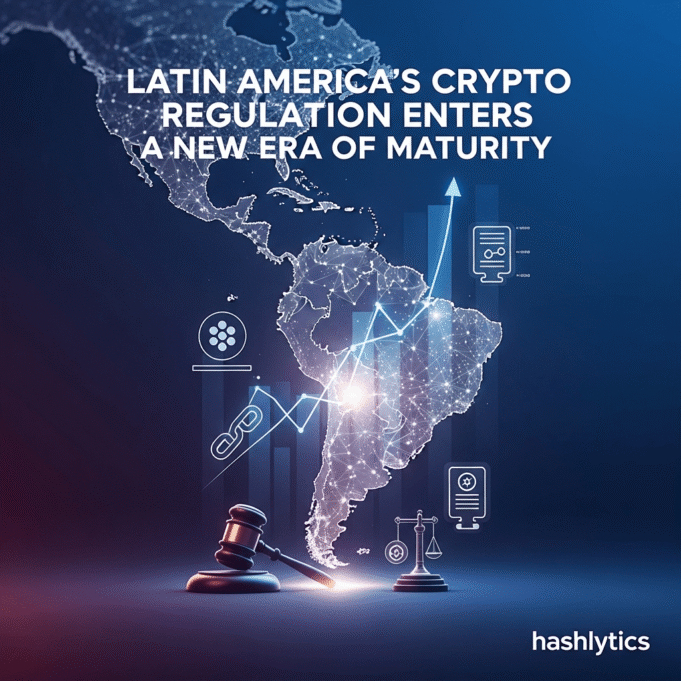-1.70%
+1.67%
+7.23%
-0.05%
-2.70%
-1.70%
For years, the promise of cryptocurrency in Latin America has been palpable, fueled by pressing economic necessity and a burgeoning tech-savvy population. In a region grappling with high inflation, currency devaluation, and a significant unbanked population, digital assets represent more than just an investment—they’re a potential lifeline for financial stability and inclusion.
A Landmark Study on Regional Progress
According to a landmark study, that promise is now coalescing into tangible regulatory frameworks, positioning the region not just as an adopter, but as a global architect of digital finance.
The LATAM Crypto Regulation Report 2025, spearheaded by digital asset management platform Coinchange, paints a comprehensive picture of a region moving decisively from the largely unregulated “Wild West” era to one of structured oversight and predictable growth.
Industry Collaboration Driving Change
This isn’t just another dry legal brief. Developed in collaboration with leading fintechs, exchanges, and ecosystem partners, the report highlights a pivotal shift: Latin America is entering its regulatory maturity.
From the bustling markets of Brazil, which has seen significant movement towards comprehensive crypto legislation, to the innovative hubs of Argentina and Mexico, and extending to Chile, Colombia, and beyond, governments are increasingly embracing clarity.
They recognize that well-defined rules are not shackles designed to stifle innovation, but rather accelerators for sustainable growth, enhanced financial inclusion, and increased investor confidence.
This collaborative effort involves industry stalwarts like Bitso, M⁰, CryptoMKT, Utila, Borderless, BitMart, Kast, Nexbridge, Nexplace, and Coinflow, underscoring a shared vision across the ecosystem: to foster productive dialogue between regulators, fintech innovators, and institutional participants driving mainstream adoption.
From Experimentation to Enforcement
The narrative arc across Latin America is compelling: a transition from tentative experimentation to robust enforcement.
For years, many nations approached crypto with caution, issuing general warnings or simply lacking specific legislation. This often left businesses and consumers in a legal grey area, hindering investment and fostering an environment ripe for illicit activities.
The report underscores how this is changing across the region.

